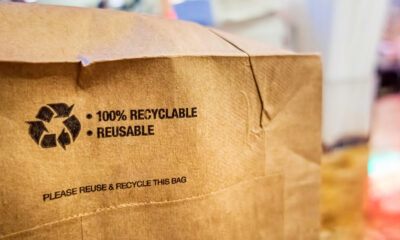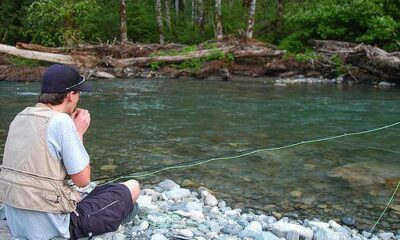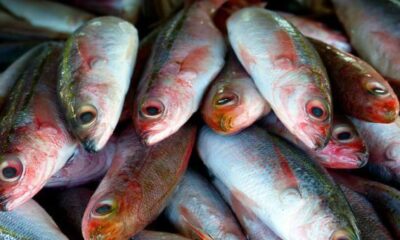Environment
UK sees rise in sustainable fish on sale
The number of sustainable fish products on sale has risen; consumers are choosing to buy more adventurous species of fish, but can more still be done? Charlotte Reid finds out.
The number of sustainable fish products, certified by the Marine Stewardship Council (MSC), has risen by 41% in the past year.
 The number of sustainable fish products on sale has risen; consumers are choosing to buy more adventurous species of fish, but can more still be done? Charlotte Reid finds out.
The number of sustainable fish products on sale has risen; consumers are choosing to buy more adventurous species of fish, but can more still be done? Charlotte Reid finds out.
The number of sustainable fish products, certified by the Marine Stewardship Council (MSC), has risen by 41% in the past year.
The MSC’s ecolabel system shows consumers which species of fish are sustainable. Back in 2008, there were 200 MSC certified products in UK supermarkets. In 2010 this figure was 701, and by the end of 2011, it had increased by 41% to 988 products.
Retailers are also thinking more about their commitments to sustainable seafood. The Supermarket Seafood Survey, conducted by the Marine Conservation Society (MCS), awarded Marks and Spencer and The Co-operative with gold awards for their seafood policies.
This rising interest in sustainable fishing is in part down to television chef Hugh Fearnley-Whittingstall. He raised the issue with his show The Big Fish Fight last year, which highlighted wasteful fishing practices and the pressure put on of popular stocks of fish.
The show’s website says its impact ranges from Marks and Spencer launching a Forever Fish initiative, to Sainsbury’s encouraging their customers to avoid buying fish from the top five most common, like cod or haddock, and to instead go for a lesser known one.
Last year also saw the sale of sustainable fish increase. However, Greenpeace wrote on its blog that it was concerned about this in case it was creating problems elsewhere.
It said it was good to see a rise in sustainable fish sales, but also pointed out a rise in seafood sales.
Greenpeace noted that if the demand for fish does not address issues like overfishing and bottom trawling amongst other issues, then the problems about fishing do not go away.
But there are calls to address these issues. In fact, the Prince of Wales is to launch a campaign to stop the destruction of the ocean through overfishing.
The report from the International Sustainability Unit (ISU), one of Prince Charles’ charities, will warn of the long-term consequences on the oceans unless action is taken to make fishing more efficient.
When you are doing your weekly shop, consider not only the meals you are going to make, but also where the food came from.
To find out more about sustainable fishing and products available then check The Good Shopping Guide or the Ethical Consumer.
And if you are interested in shopping ethically then we recommend using The Ethical Superstore.
Picture source: Brad Hinton


 Environment12 months ago
Environment12 months agoAre Polymer Banknotes: an Eco-Friendly Trend or a Groundswell?

 Features11 months ago
Features11 months agoEco-Friendly Cryptocurrencies: Sustainable Investment Choices

 Features12 months ago
Features12 months agoEco-Friendly Crypto Traders Must Find the Right Exchange

 Energy11 months ago
Energy11 months agoThe Growing Role of Solar Panels in Ireland’s Energy Future






























